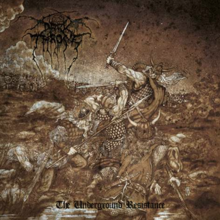피시슘 101
101 Piscium| 관측 데이터 Epoch J2000.0 이쿼녹스 J2000.0(ICRS) | |
|---|---|
| 별자리 | 물고기자리 |
| 우측 상승 | 01h 35m 46.44226s[1] |
| 탈위임 | +14° 39′ 41.1144″[1] |
| 겉보기 크기 (V) | 6.23[2] |
| 특성. | |
| 스펙트럼형 | B9.5 III[3] |
| U-B색지수 | −0.151[4] |
| B-V색지수 | −0.036±0.005[2] |
| 아스트로메트리 | |
| 방사 속도 (Rv) | -10.10km[5]/s |
| 고유 운동 (μ) | RA: +3.287[1] mas/yr Dec.: −8.052[1]mas/yr |
| 시차 (π) | 2.3343 ± 0.0663[1] 마스 |
| 거리 | 1,400 ± 40 리 (102 ± 10 pc) |
| 절대치수 (MV) | −2.07[2] |
| 세부 사항 | |
| 미사 | 4.53±0.51[6] M☉ |
| 반지름 | 3.6[7] R☉ |
| 루미도 | 1,037+523 −347[6] L☉ |
| 표면 중력 (log g) | 2.907±0.028[8] cgs |
| 온도 | 10,471+49 −48[6] K |
| 회전 속도 (v sin i) | 초속 246km[6] |
| 기타 지정 | |
| 데이터베이스 참조 | |
| 심바드 | 자료 |
101 피시움은 피시스의 별자리에 있는 항성으로,[9] 태양으로부터 약 1,400광년 떨어져 있다.이것은 육안으로 볼 수 있는 가시성 하한 부근에 있는 흐릿한 청백색의 후아 항성으로, 겉으로 보이는 시각적 크기 6.23으로 나타난다.[2]이것은 NSV 559라는 명칭을 가진 것으로 의심되는 변광성이다.[10] 101 피시움은 플램스티드 명칭이다.이 별은 -10 km/s의 태양 중심 방사상 속도로 지구 가까이 이동하고 있다.[5]
이 물체는 B9.5 III라는 별의 분류를 가지고 있어 중심부에서 수소를 소비하고 주계열성으로부터 멀리 진화하고 있는 거대한 별과 일치한다.[3][6]임계 속도 270km/s에 비해 246km[6]/s의 예상 회전 속도로 빠르게 회전하고 있다.[8]이 별은 태양의 4.5배[6], 태양의 반경 약 3.6배의[7] 질량을 가지고 있다.그것은 유효 온도 10,471 K로 광권으로부터 태양의 약[6] 1,000배의 광도를 방출하고 있다.[6]
참조
- ^ a b c d e Brown, A. G. A.; et al. (Gaia collaboration) (August 2018). "Gaia Data Release 2: Summary of the contents and survey properties". Astronomy & Astrophysics. 616. A1. arXiv:1804.09365. Bibcode:2018A&A...616A...1G. doi:10.1051/0004-6361/201833051.이 소스에 대한 가이아 DR2 기록 VizieR.
- ^ a b c d Anderson, E.; Francis, Ch. (2012). "XHIP: An extended hipparcos compilation". Astronomy Letters. 38 (5): 331. arXiv:1108.4971. Bibcode:2012AstL...38..331A. doi:10.1134/S1063773712050015. S2CID 119257644.
- ^ a b Cowley, A.; et al. (April 1969). "A study of the bright A stars. I. A catalogue of spectral classifications". Astronomical Journal. 74: 375–406. Bibcode:1969AJ.....74..375C. doi:10.1086/110819.
- ^ Gutierrez-Moreno, Adelina; et al. (1966). "A System of photometric standards". Publications of the Department of Astronomy University of Chile. Publicaciones Universidad de Chile, Department de Astronomy. 1: 1–17. Bibcode:1966PDAUC...1....1G.
- ^ a b Gontcharov, G. A. (2006). "Pulkovo Compilation of Radial Velocities for 35 495 Hipparcos stars in a common system". Astronomy Letters. 32 (11): 759–771. arXiv:1606.08053. Bibcode:2006AstL...32..759G. doi:10.1134/S1063773706110065. S2CID 119231169.
- ^ a b c d e f g h i Zorec, J.; et al. (2012). "Rotational velocities of A-type stars. IV. Evolution of rotational velocities". Astronomy and Astrophysics. 537: A120. arXiv:1201.2052. Bibcode:2012A&A...537A.120Z. doi:10.1051/0004-6361/201117691. S2CID 55586789.
- ^ a b Pasinetti Fracassini, L. E.; Pastori, L.; Covino, S.; Pozzi, A. (February 2001). "Catalogue of Apparent Diameters and Absolute Radii of Stars (CADARS)". Astronomy and Astrophysics (Third ed.). 367: 521–524. arXiv:astro-ph/0012289. Bibcode:2001A&A...367..521P. doi:10.1051/0004-6361:20000451. S2CID 425754.
- ^ a b Huang, W.; et al. (2010). "A Stellar Rotation Census of B Stars: From ZAMS to TAMS". The Astrophysical Journal. 722 (1): 605–619. arXiv:1008.1761. Bibcode:2010ApJ...722..605H. doi:10.1088/0004-637X/722/1/605. S2CID 118532653.
- ^ a b "35 Psc". SIMBAD. Centre de données astronomiques de Strasbourg. Retrieved 2019-03-24.
- ^ Samus, N. N.; et al. (2017). "General Catalogue of Variable Stars". Astronomy Reports. 5.1. 61 (1): 80–88. Bibcode:2017ARep...61...80S. doi:10.1134/S1063772917010085. S2CID 125853869.


